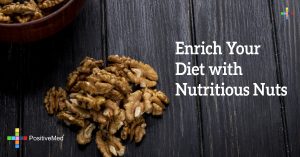V@ginal thrush, also known as candidal vulvovaginitis, is an infection of the honeypot that is caused by excessive yeast growth. As many as three out of four women suffer from v@ginal thrush at some point in their lifetimes. In fact, some women actually experience this particular infection more than once.
Including candida and bacteria, the honeypot normally contains a balanced mix of yeast. The acid produced by bacteria prevents yeast overgrowth. This yeast infection is, therefore, the result of an imbalance between good bacteria and naturally occurring yeast.

Symptoms
• Itching in the honeypot and the vulva
• Soreness and redness around the honeypot
• A burning sensation with urination
• Severe pain while getting it on
• White and thick v@ginal discharge
Although it is not classified as an STI, this infection is more common in women who get it on frequently.
Other risk factors include:
• Ingestion of antibiotics
• Uncontrolled diabetes
• Pregnancy
• HIV/AIDS
• Impaired immunity
• Use of either oral contraceptives or hormone therapy
RELATED ARTICLE: 8 Reasons Why Pain Interfering With Women’s Pleasure
Below are the best natural remedies for v@ginal thrush.
1. Yogurt
Yogurt helps to maintain a proper balance of good bacteria since it contains probiotics which keep yeast from overgrowing.
Preparation and usage
• Dip a tampon in yogurt before inserting it into your honeypot for two hours. Use lukewarm water to clean the area after removing the tampon and then dry thoroughly. Repeat the process twice daily.
• Add yogurt that contains live cultures to your diet.
Note: Use only plain, unsweetened yogurt to treat yeast infections since sweetened yogurts can worsen the condition.
2. Coconut Oil
Coconut oil has antifungal properties that are effective in killing the fungi responsible for yeast infections.
Preparation and usage
• Apply extra-virgin coconut oil directly onto the affected area 2-3 times daily until you see improvement.
• Add coconut oil to your daily diet. Start with one teaspoon of extra-virgin coconut oil daily. Gradually increase the dosage to about three tablespoons daily.
READ ALSO: Optimize Your Feminine Hygiene and Eliminate Yeast Infections With Coconut Oil
3. Apple Cider Vinegar
Apple cider vinegar contains natural enzymes that help to regulate the pH of honeypots, which in turn prevents yeast growth. It also boosts good bacteria in the honeypot, which helps in the prevention and treatment of v@ginal thrush. Apart from boosting immunity, apple cider vinegar contains malic acid, which has antiviral, antifungal, and antibacterial properties.
Preparation and usage
• Mix three tablespoons of raw, unfiltered apple cider vinegar with two cups of warm water and use the solution to wash your honeypot twice every day until your condition improves.
• Mix equal quantities of water and apple cider vinegar, soak in a tampon and insert it into your honeypot for 10-15 minutes. Use warm water to wash after removing the tampon, and then wipe the area dry. Repeat once every day until you heal.
• Add two cups of raw, unfiltered apple cider vinegar to a bathtub filled with warm water. Sit in the tub with your knees folded and let your honeypot soak for 15 minutes before patting yourself dry. Repeat once daily.
• Drink a mixture of one cup water and two tablespoons of raw, unfiltered apple cider vinegar twice daily for several days.
4. Boric Acid
Due to its mild antiseptic and antifungal properties, boric acid treats v@ginal thrush effectively.
Preparation and usage
• Insert one “00 sized” gelatin capsule filled with boric acid deep into your honeypot at bedtime at least once a week.
• Dilute one teaspoon of boric acid in two cups of warm water. Apply the diluted solution of boric acid onto the affected area of your honeypot for a few minutes. Use water to rinse the area thoroughly. Repeat once every day for two weeks.
Note: You should not use boric acid either frequently or when pregnant since it can cause v@ginal thrush.
5. Aloe Vera
Aloe Vera contains enzymes, amino acids, and vitamins that inhibit the growth of candida. Its anti-inflammatory, antifungal, and anti-irritating properties also help to control and treat v@ginal thrush.
Preparation and usage
• Blend a mixture of two tablespoons of aloe vera gel and one cup of orange juice or water. Drink the aloe vera juice once every day for several days.
• Apply gel extracted from a fresh aloe vera leaf onto the affected area several times daily until the infection clears.
Note: Wash the leaves thoroughly before use and refrain from taking aloe juice in excess since it can cause gastrointestinal discomfort.
6. Oil of Oregano
Oregano oil contains carvacrol and thymol, both of which are naturally occurring antimicrobial agents. These agents dehydrate and kill candida yeast cells. This oil also contains anti-inflammatory, antifungal, antiviral, and antibacterial properties.
Preparation and usage
• Mix equal parts of oregano oil and olive oil. Apply the mixture onto your honeypot topically 2-3 times daily for a week.
• Take one or two capsules of oregano oil twice every day for a week.
Note: Oil of oregano is a natural blood thinner. You should, therefore, refrain from taking it if you have blood-clotting issues and while taking blood thinners. Pregnant women should also avoid oregano oil.
Conclusion
Although v@ginal thrush is a common infection, most cases are easily treatable. You can, however, avoid prescription medication by trying any of the natural home remedies mentioned above. As you might have learned by now, natural remedies are a better option compared to prescription treatments.






